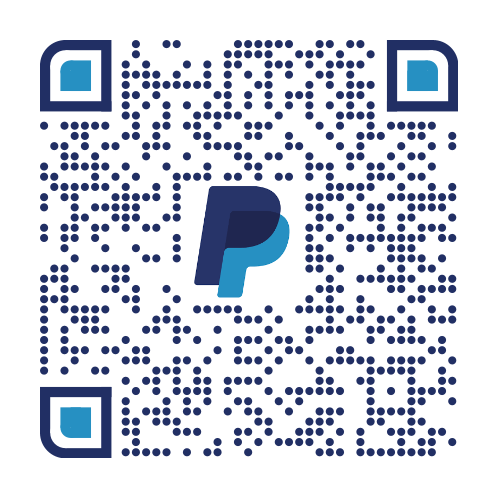Code of Conduct FAQs
Sisters in Crime Code of Conduct FAQs
This is a living document that will be updated, changed, and added to as we learn about the community needs/concerns, as the community provides input and questions, and as we gain knowledge through the real-life implementation of the Code of Conduct. We can’t predict or prepare for every eventuality, but are committed to this work and revisiting our process.
Contents:
When you click on a link here, you will need to scroll up a bit to see the question.
- What is the Equity Project 101 course?
- Why should I take the Equity Project 101 course?
- Microaggressions are listed as one of the biggest issues. How can I recognize when they happen & support members when they do?
- What does “tokenized” mean?
- What if I feel worried about causing more harm if I get any of this “wrong”?
- What is meant by a bad faith argument regarding DEIJB?
Q: What is the Equity Project 101 course?
A primer of terms and concepts involved in the practice and learning of Diversity, Equity, Inclusion, Justice, and Belonging (DEIJB), useful for newcomers to these spaces as well as those searching for ways to language their own ongoing practice. This is a free-for-SinC-members online course that can be taken at your own pace, allows you to reflect privately, and is made for everyone at any point in their learning journey. The course is approximately 3 hours that can be completed over time at your own pace via Thinkific. More information and registration here: https://www.sistersincrime.org/page/Equity101
Q: Why should I take the Equity Project 101 course?
A: It is meant to offer a foundation and to provide a shared understanding across the organization. Hopefully, it will offer you, as a SinC leader, an opportunity to learn, grow, reflect, and model some of these ideas and practices for others in the organization. The National leadership that has taken the full course has learned a great deal, has appreciated the opportunity to learn at their own pace and privately, and has made this course free to all members in order to ensure nobody in our community is prohibited from access to the content. Equity Project 101 online course
Q: Microaggressions are listed as one of the biggest issues. How can I recognize when they happen & support people when they do?
A: Most of us have been on both sides of microaggressions and know how difficult it can be to address and untangle our feelings when we experience them. Even when we do our best, mistakes will happen. We can cause harm and be harmed due to ignorance – we don’t know what we don’t know. Our goal as SinC members and leaders can be to minimize how often they happen and learn to minimize the impact on those harmed. We can also believe others when they tell us they have experienced microaggressions, especially if those individuals are part of marginalized communities. We recommend you take the 101 course, which discusses this in more depth, utilize the other resources SinC has provided, and seek out additional resources that address any specific concerns you have.
Microaggressions are actions that create an unsafe space for members in indirect, subtle, or unintentional ways. Things like telling a wheelchair user “you’re so brave,” or saying “I don’t see color” are small, painful reminders that the people they’re said to or about are considered “other” or “different”. This is the most common form of exclusion and oppression our marginalized members will face and possibly the most challenging to overcome; therefore, it is all the more important to tackle.
Q: What does “tokenized” mean?
According to Dictionary.com: to hire, treat, or use (someone) as a symbol of inclusion or compliance with regulations, or to avoid the appearance of discrimination or prejudice:
The company has been accused of tokenizing women and people of color in their advertising.
Q: What if I feel worried about causing more harm if I get any of this “wrong”?
A: If you’re feeling worried or scared, that’s a perfectly valid reaction. However, it cannot be a reason that we do nothing, especially when we have such incredible access during this age of information. SinC is striving to put support in place to ensure we are providing both SinC-specific resources and sharing resources others have created. Doing nothing can sometimes be as harmful as “getting it wrong”. Doing nothing can sometimes be as harmful as “getting it wrong”. While it may feel like doing nothing or avoiding discussions related to DEIJB is neutral, it is a choice that has an impact on others. Generally, those of us that are in a position to make choices about engagement on these topics, can do because the situation doesn’t impact us or our identities – while those impacted have no choice but to engage. When we know better we can do better and this requires that we all be open to learning, and growing, constantly.
Q: We sometimes encounter bad-faith arguments related to DEIJB. How do we counter them in good faith?
We cannot control what other people think or believe, but we can get curious about why they think or believe certain things. When discussing DEIJB we can consistently refer back to the Core Values of SinC and the founding principle of advocacy – we have we have always been more than solely a writing organization. We can appeal to members’ appreciation of the SinC community, their empathy, and human desire to include others. We can also cite the data SinC has collected as well as the data included in other provided recourses to support the needs of our incredibly diverse membership. There is no “one-size-fits-all” way of being a member of SinC and by asking to be intentional in how we include folks does not mean we are, therefore, looking to exclude others. We cover some of these talking points in The Equity 101 course and some of the other courses available to you on Thinkific.
Examples of bad-faith arguments or misrepresentation might include claiming DEIJB seeks to take rights and power away rather than more evenly distribute power and codify rights for all or misrepresenting DEIJB as part of a political agenda rather than an active reflection and extension of SinC’s long-standing Core Values.



